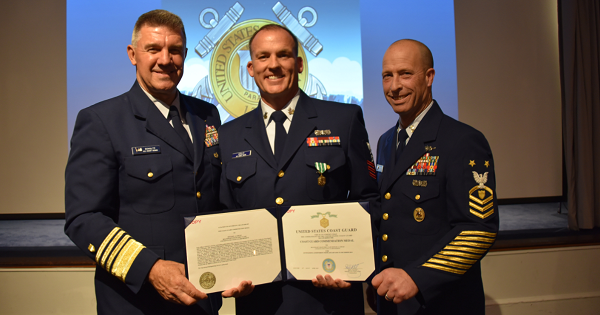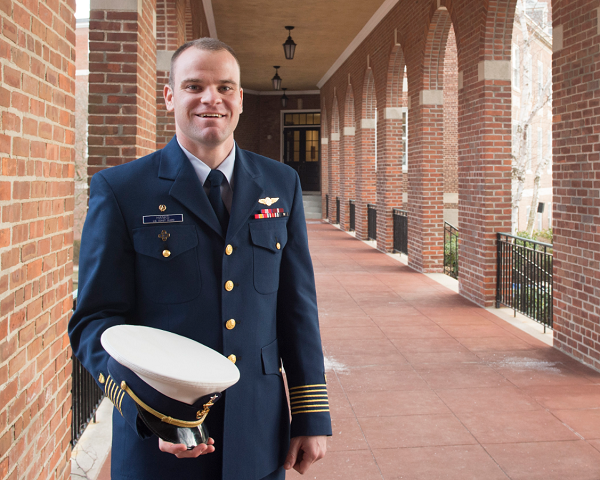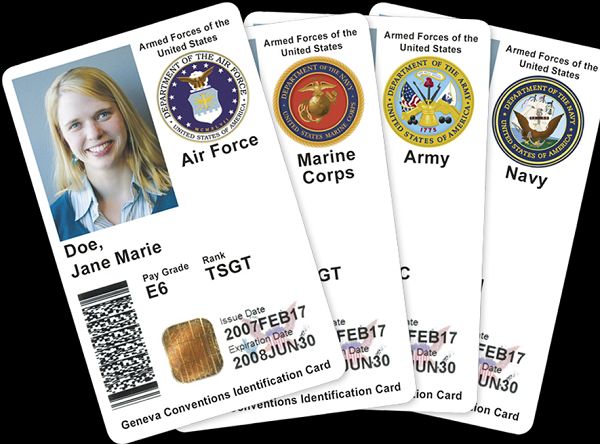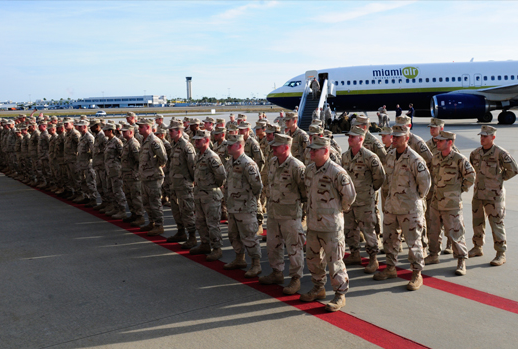Joining the Coast Guard Reserve component has many benefits and opportunities that can assist both the service member and their family members.
The Coast Guard Reserve benefits allow individuals to bring home an income for their drill weekend and annual training.
Benefits also include MWR benefits, flexible training options, the ability to ensure your loved ones are taken care of in the event of an accident with low-cost life insurance, and many more.
Below we will explore the difference between enlisted and officer pay in the Coast Guard Reserves, as well as other benefits that reserve members can enjoy and take advantage of.
Related Article – Coast Guard Age Limit
Jump To A Section
1. Enlisted and Officer Pay

All enlisted Coast Guard Reserve members and Officers receive drill pay.
Pay is based on rank and time of service and is a prorated amount of active duty pay.
There can be a significant difference between enlisted and officer pay.
For those who enter into the Coast Guard reserves, with no prior military experience as an E-1, you can expect to make $56.03 a drill period, after your first four months of service.
This amount increases to $62.80 a drill period as an E-2 under two years of service.
For reserve members not on active duty, their weekend training consists of four drill periods.
As an E-1, under two years of service, individuals will receive $224.12 a weekend.
For those who become warrant officers in the reserves, the lowest pay received for a single drill as a W-1 with less than two years of service is $103.88.
For a standard weekend of drills, warrant officers with a W-1 rank will receive $415.52.
Commissioned Officers as an O-1 with two or fewer years of experience receive $106.28 a drill and $425.12 for a standard drilling weekend.
While becoming an officer may require additional schooling and training, the pay and benefits are larger at lower ranks than a reserve enlisted position.
For enlisted Reserve to receive the minimum drill amount that warrant officers or commissioned officers receive, they must be at minimum an E-5 with over eight years of service or an E-6 with over six years of experience.
The pay table providing drill pay amounts for the Military and Reserve components can be found here.
Related Article: How To Join The Coast Guard
2. Class ‘C’ Facilities
The Coast Guard provides Morale, Welfare and Recreation (MWR) benefits.
Reserve members have access to use all of the activities in facilities providing Morale, Welfare and Recreation benefits.
The MWR Program provides Coast Guard members with activities and outlets to lift spirits and resiliency.
MWR is an organization that supports and assists members on military installations around the world.
Coast Guard MWR Programs are customer-owned facilities that drive MWR principles.
The type of facilities varies based on the installation.
Some types of facilities are aimed at entertainment such as bowling centers and golf courses.
MWR benefits include discounted tickets and sporting activities.
You can find entertainment and dining, community recreation, and parks and recreation.
There are also fitness opportunities, youth centers, and recreation clubs.
MWR does not just provide services aimed at fitness or entertainment, services are provided to help the well-being of the service member or their family.
These include financial counseling, spouse employment programs, health and wellness, and family programs.
Other MWR services support travel through military discounts at specific destinations or lodging facilities.
Related Article – Marine Corps Reserve Benefits
3. Training and Entry Programs
Although the Coast Guard allows Reserve members to hold their civilian jobs or attend school while reporting for drill, it can be difficult to leave your job for the entire duration of training.
The Coast Guard offers training and entry programs that are geared towards providing flexibility in training or entering into the Coast Guard Reserve.
Split Training Program
This program is ideal for those who are unable to attend both basic training and specialized training consecutively.
Split Training Program allows individuals to attend eight weeks of basic training then return home and attend specialized training at a later time.
If you are attending school, are a teacher, or someone who has seasonal employment, you can schedule your training to fit your schedule.
Individuals must be between the ages of 17 and 31 to use this program.
Consecutive Training Program
This program is usually pushed for individuals who have less than 60 semester hours of college and no prior service or skills that relate to a Coast Guard job.
Individuals in this program will attend eight weeks of basic training and then specialized training consecutively.
It is open to recruits between the ages of 17 and 31.
Related Article: 5 Best Coast Guard Jobs
Direct Entry Petty Officer Program
The Direct Entry Petty Officer Program is aimed at individuals who have professional or prior military skills that relate to a Coast Guard Job.
It allows individuals to attend three weeks of condensed basic training at Cape May, NJ.
Then, instead of attending specialized training, recruits will report directly to their duty station.
This program provides the possibility of enlisting at a higher rank, such as an E4, which provides more pay, benefits and responsibilities.
The Direct Entry Petty Officer Program is open to individuals who are between 27 and 40 years old.
Direct Entry Education Program
The Direct Entry Education Program is ideal for individuals with 60 or more semester hours of college.
It is open to those who are between the ages of 27 and 40.
Recruits will attend three weeks of condensed training at Cape May, NJ.
Depending on the needs of the Coast Guard, individuals will either complete specialized training then report to their duty station, or report to their duty station first, and complete specialized training after.
Individuals who enter into this program can possibly join as an E3.
This provides higher starting pay, benefits, and responsibility.
Related Article – ASVAB Scores For Coast Guard Jobs
Prior-Military Service Program

The Prior-Military Service Program is for individuals who were previously in the military and are looking to build on experience and gain retirement points.
Applicants complete three weeks of condensed training at Cape May, NJ, followed either by specialized training or reporting to their duty station, to complete training later.
Some previous military occupations may allow individuals to apply for this program up to the age of 40.
Upon completion of training, reservists will be ranked an E4.
Related Article: 18 Pros And Cons Of Joining The Coast Guard
4. Life Insurance
Reserve members have the benefit of low-cost life insurance through Servicemembers’ Group Life Insurance (SGLI).
For those who are in active duty or engaged in ROTC, you are automatically enrolled in SGLI for full coverage.
Other individuals may apply for coverage and be awarded full or part-time coverage.
The coverage is available in $50,000 increments up to $400,000.
The cost of coverage is equivalent to 6 cents for every $1,000 in coverage, plus an additional $1.00 a month for Traumatic Injury Protection coverage.
For the most expensive plan, coverage for $400,000, reserve members would only pay $25.00 a month.
Coverage costs are automatically deducted from base pay.
Once separated or discharged, members receive 120 days of free coverage before they are required to convert their coverage to a veterans plan.
SGLI covers 365 days a year as long as individuals are participating in monthly drills.
There are many misconceptions about insurance coverage, such as not being covered if the individual is in a motorcycle accident, terrorist attack or not wearing a seatbelt.
SGLI still covers in all of those situations and more.
Find more information on misconceptions and reserve coverage here.
Related Article – Coast Guard Jobs List: A List Of All Ratings In The Coast Guard
5. CAC/ Uniformed Services Identification Card

Coast Guard Reserve members are eligible to receive a CAC or Uniformed Services ID Card.
Selected Reserves members and those on active duty will receive a CAC (Common Access Card) and those in the IRR will receive a Uniformed Services ID Card.
This is a benefit to reserve members because it provides access to buildings, controlled spaces, network systems and serves as your identification to receive discounts or benefits.
CACs come from the Defense Enrollment Eligibility Reporting System (DEERS).
Ultimately, being provided this card allows reserve members to have the convenience and security provided to active duty members.
Using this card, reserve members can electronically sign documents or encrypt emails.
It also provides electronic convenience when being issued weapons or gear, rather than performing the procedure manually.
The CAC/Uniformed Services Identification Card serves as a single source of ID.
Civilians must carry their ID card, medical card, dental card, and gym membership cards.
For Reserve members, all of that information is stored on this one ID card.
The card can also serve as a VISA for deployments.
Having this convenient and multi-use card is a benefit provided to Coast Guard Reserve members that saves time and protects information.
6. Reserve Benefits
Regardless of the branch you choose to serve in, there are some benefits that are provided to all active reserve members.
The specific application or details for the benefits may change depending on the branch, but all reserve members are provided with:
- TRICARE health insurance
- Direct deposit
- Drill pay
- Education assistance
- Job protections
- Life insurance
Related Article – Air Force Reserve Benefits
Conclusion
The Coast Guard ensures that their Reserve members are taken care of.
They provide competitive pay that lets you know your time is valuable.
Flexible training programs allow more individuals to enjoy the benefits of serving their country on a part-time status, without jeopardizing civilian work or school.
MWR facilities are a benefit provided to reserve members to keep spirits up and improve on family life, physical fitness, and your mental well-being.
The benefit of low-cost life insurance is available to reserve members so you can be prepared in the event of an accident.
Finally, reserve members are allowed the benefit of using a CAC/ Uniformed Services Identification Card, similar to their active duty counterparts, that allows for convenience and saves time.
References
Reserve Coast Guard Life Insurance
- Replacing Dog Tags: 6 Things You Need to Know - June 28, 2024
- Navy OAR Test Study Guide - June 24, 2024
- 10 Best Sniper Movies of all Time - June 20, 2024
Originally posted on December 13, 2019 @ 12:02 am
Affiliate Disclosure: This post may contain affiliate links. If you click and purchase, I may receive a small commission at no extra cost to you. I only recommend products I have personally vetted. Learn more.
